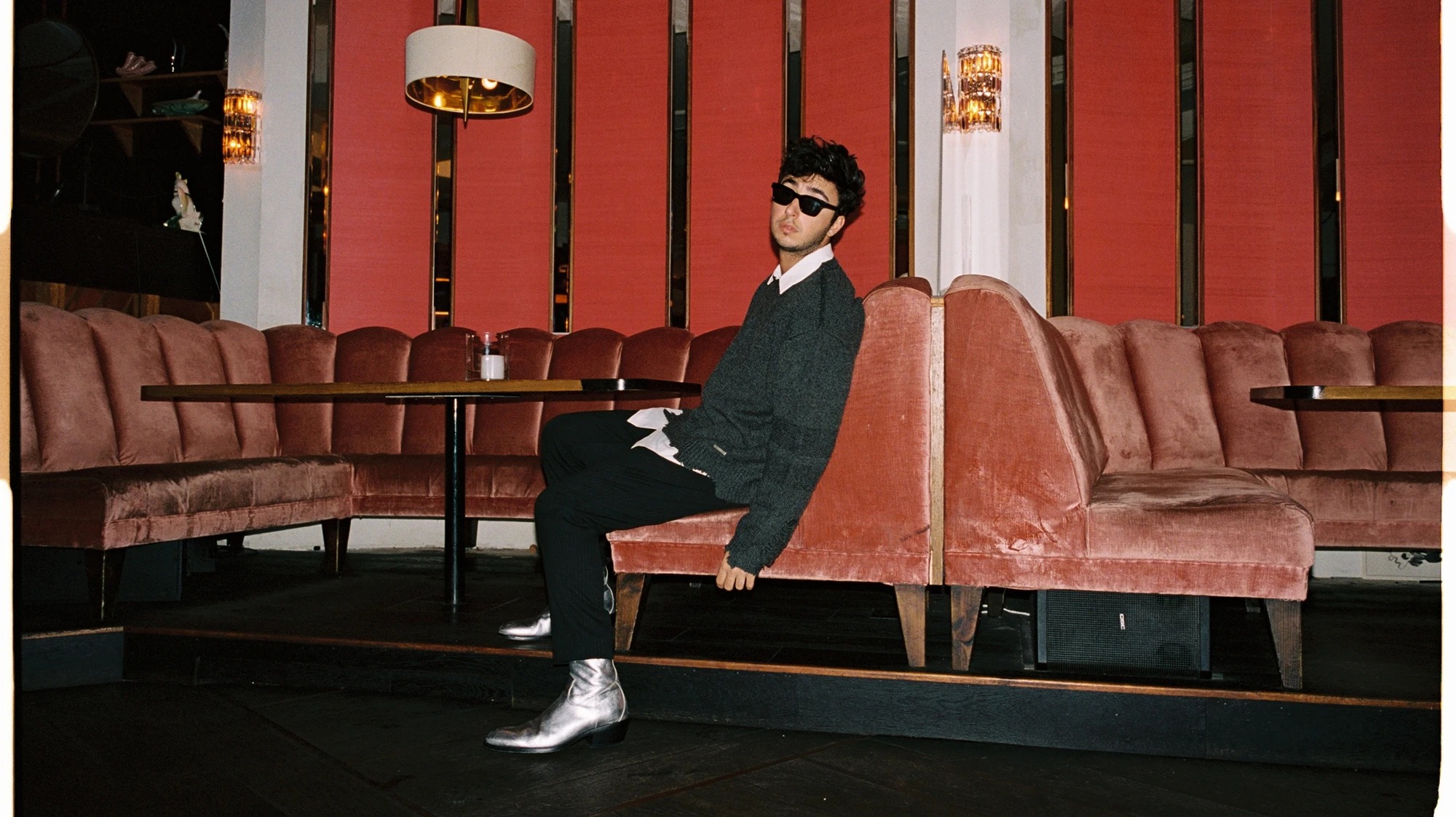This article originally appeared on i-D France.
Though Zack Bia was born in New York, it was in Los Angeles that the then-student began his nightlife career aged eighteen — initially as a way to make ends meet while at university. Very quickly, though, his seriousness and knack for getting the right people together were noticed. Put simply: with Zack, the party kicks off. Word soon spread among students, skaters, actors, and celebrities, all of whom would flock to these new parties that radically deviated from the norm. A meeting with the man who would become his mentor, John Terzian (Hwood Media), definitively opened the City of Angels’ doors to him. Building on their success, the partners-in-crime eventually opened Delilah, a conceptual restaurant where the night carries on long after dinner. Within just a few months of its opening, it was attracting LA insiders in their droves, and playing a key role in changing the city’s party culture.
A digital native and mainstay of the streetwear world, Zack navigates the many scenes he’s part of with ease, demonstrating a honed taste for newness and the underground all the while. During lockdown, he continued bringing cool kids, models, musicians and designers together by way of Instagram Live, proving the extent of his influence on LA party culture at a time when it otherwise all but exists.
Below, Zack Bia speaks with i-D France Editorial Director, Claire Thomson-Jonville.
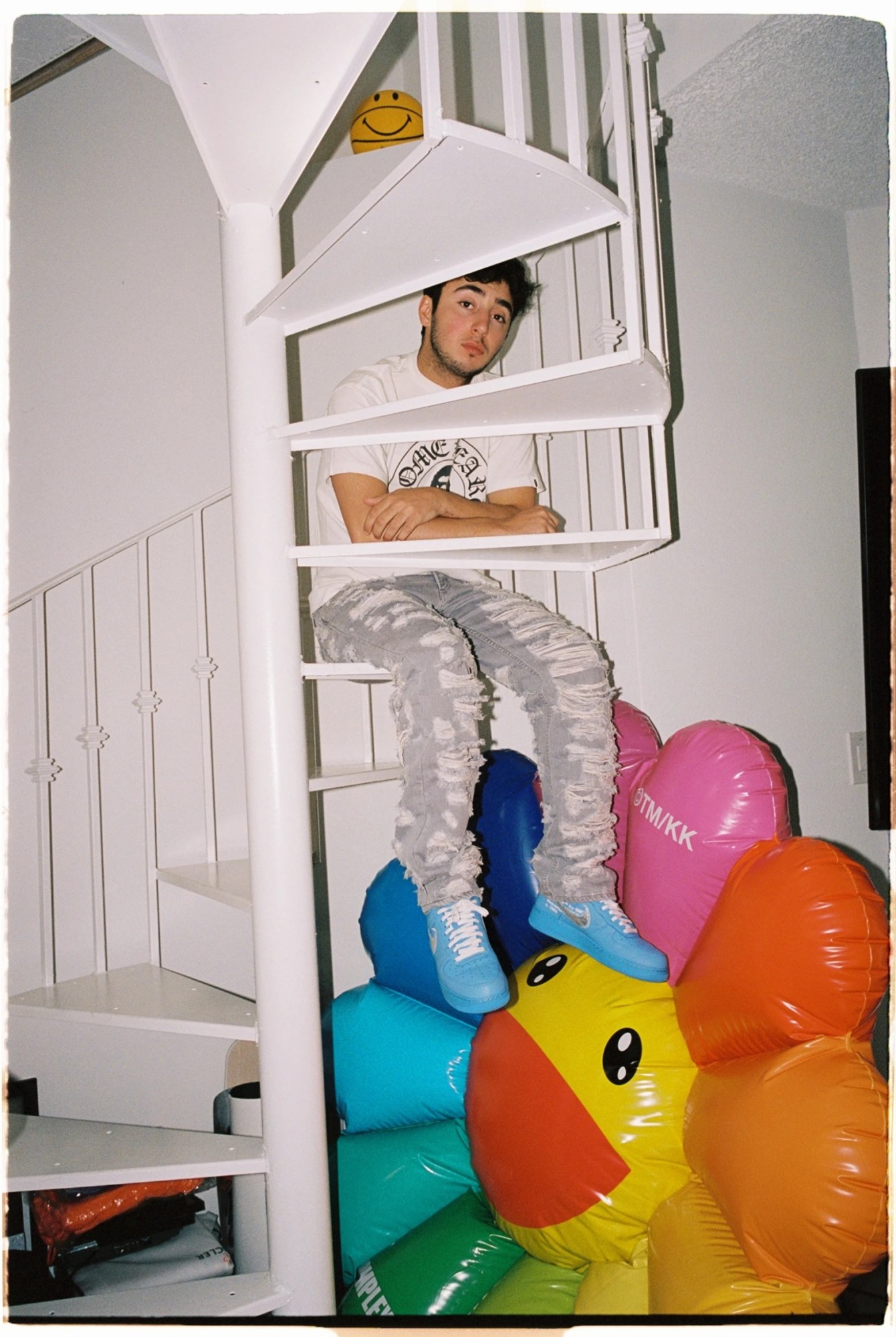
CTJ: Hi Zack. You made an amazing playlist for i-D that I listened to on a loop during quarantine, but this is the first time we’ve chatted for i-D France. Could you tell us a little about your background, your career, and how you got to where you are today? Also, I didn’t know that you were French!
Zack: My parents are from Paris, but I was born in New York, and when I was twelve or thirteen I moved to Los Angeles with my mom and brother. My mom was a modelling agent and she worked in fashion — we didn’t have a lot of money but I grew up with some really cool stuff. She made me listen to music, took me to museums, and taught me so much. When we moved to LA, it was a bit more difficult and I had to do things for myself. I was very lucky though, I was sent to a good public school and when I was 18, by chance, I had the opportunity to work in a club. It was a way that I could start paying for things myself. During the day, I went to school and then I worked at night. I kind of had a double life. I did a night or two a week, and I would bring people from college and my friends along with me, but I never wanted to be in the spotlight. Hanging out with celebrities wasn’t really my intention, so I did things differently, and people started to see that I was trustworthy and that I was connecting the right people together — this was at eighteen. I did that for a few months, and our parties were really successful. With the company I worked for, we opened a new place. I was no longer in a club every night after that, I was doing a little more operational stuff instead — organising parties, hiring people, DJs… And since I came from a family where art, music and fashion were all important, this really interested me. I didn’t throw traditional parties, I brought the actors, the skaters, the basketball players, the college kids — everyone came, everyone was together. There was something special about it: there’d be a singer releasing an album, who wasn’t necessarily a big star, but we would have a party for him. We always found little things like this every week. And then eventually, we found a way to create a platform with the club.
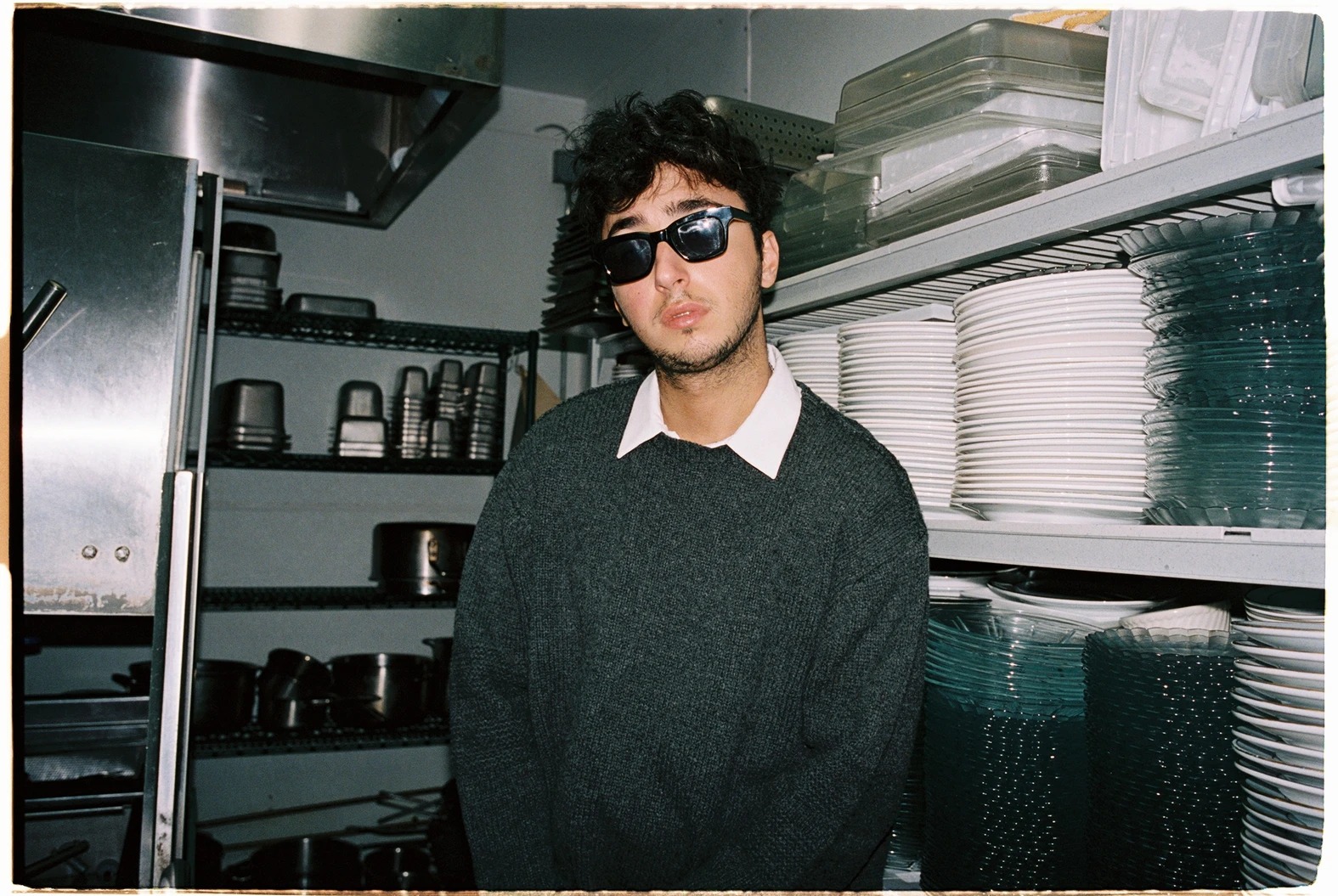
Do you think that your success story is one that’s particular to your generation? Moreover, do you feel like you’re part of one?
I would say I’m part of a community of people in LA, NYC and elsewhere that has found a way to all be connected and be able to do creative things while doing business. It’s funny because I’m not old, but I’m starting to see that there is already another generation below me. For the first time, I realise that maybe I don’t understand everything.
Tell us about your Instagram Lives during lockdown — we were totally obsessed. You had models, musicians, designers, cool kids… personalities from all walks of life gathered to continue connecting and having fun in spite of lockdown. What I also find very interesting is that you decided not to save them. There’s no way to see these Lives again.
It’s the only way you can be stimulated by digital, you had to be connected at the time to experience it. We didn’t do it for a particular reason, it was just a digital version of what we did with the same people every weekend. The only difference was that everyone could see us. The only reason we did all the wallpapers, restaurant photos, et cetera is that we were thinking about our friends and how we could bring them half an hour of happiness. We would sit together with Max and Pedro every week and make plans — what are the visuals? what is the best photo from Arthur’s garage? — and then we would ask everyone to send us a portrait. When it turned into a real thing, we quit.
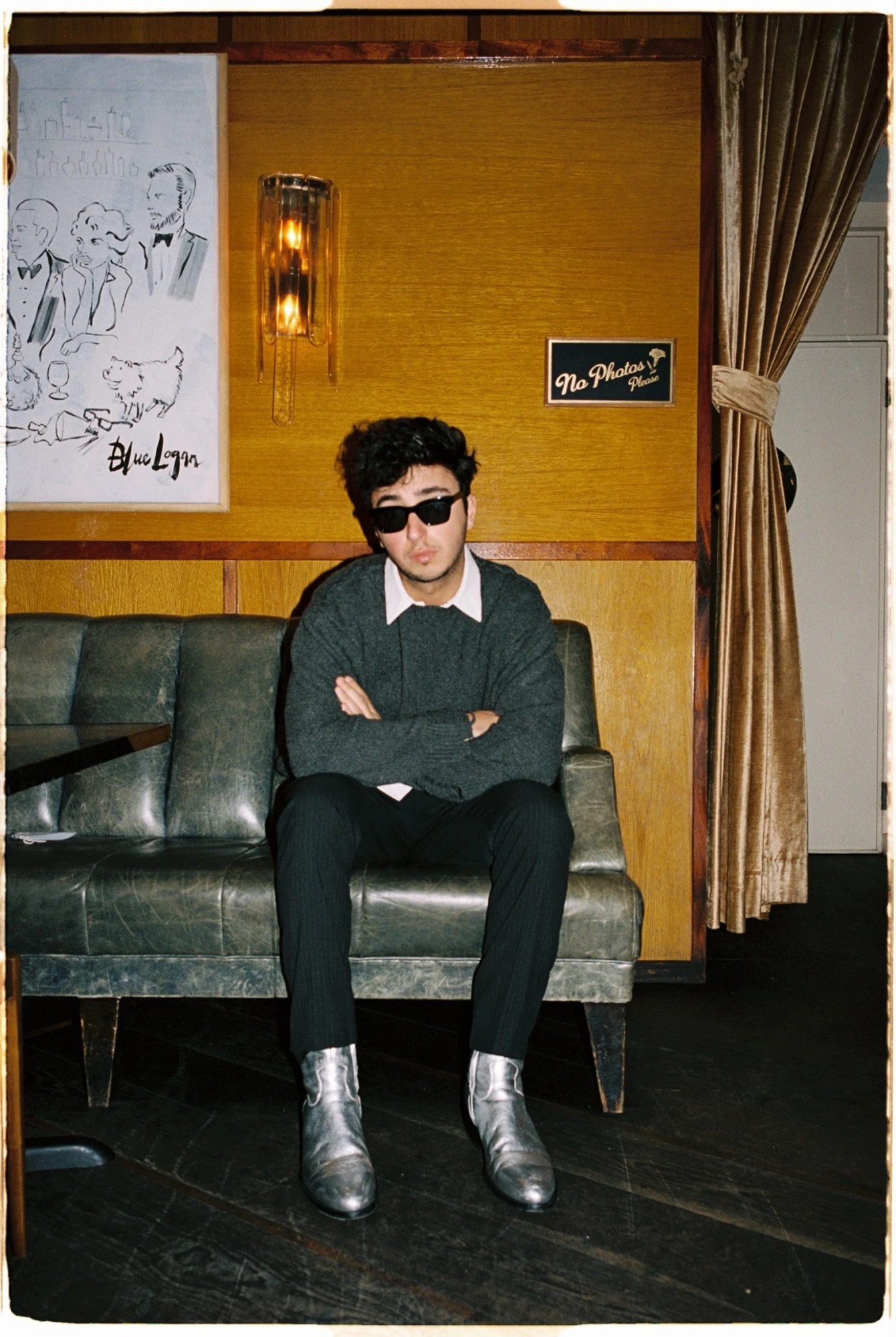
Do you think you’ll keep this concept for yourself, or are you ready to share it with fashion brands to produce digital experiences? Right now, conversations in fashion are really revolving around the current digital landscape, around what works and what doesn’t.
The fashion landscape is really changing at the moment and we even talked with Pedro about the possibility of producing digital experiences. But to quote the film The Social Network: “We don’t even know what it is yet, we just know that it’s really cool.” For us, it’s just something fun that we do outside of our jobs, something that we would do anyway. If we were to do it from a different perspective, it would become something else. The very minute we felt like the Instagram Lives were beginning to feel forced, we quit. And that’s ok. Maybe more people would have joined us, maybe it would have continued to grow, but whatever. We’d rather move on and continue to reinvent ourselves.
Coming back to your career, would you say that your big break was when you started mixing?
I was a club promoter in the traditional sense for a few months when I was eighteen, and I then met John Terzian, the owner of the club, who was expanding his business at the time. I saw him as a mentor, and I became his right hand when I was nineteen. We grew stronger together. I showed him the new stuff that I thought was cool, he introduced me to his older contacts and then we opened Delilah. That’s when everything changed. Delilah is to LA what Chiltern Firehouse is to London. It’s not a club, there’s no who’s-who, no promoters; it was just John and I handling the reservations with our team, and we created a restaurant where people wanted to stay after their meals.
The first six months, people would come for dinner and before leaving they would ask us, “What do we do next?” Which club do we go to? And we would say “Stay here”. They just had to reprogram their habits. We had Jazz parties on Sundays and that was our craziest night of all. A legend could take over the mic while the Jazz musicians played and everyone danced, then the DJ played 80s music. We reprogrammed what people could expect from a night. We changed the party culture in Los Angeles. We turned all our friends into promoters. “Are you throwing something? Cool, we’ll make you a little flyer.” Our business has become a matter of bringing people together. I’m so lucky because my favourite DJ, Pedro, is also one of my best friends. He’s a backstage mastermind. Like, Virgil was doing a party at Coachella and Pedro had to go out to take a look at the setlist.
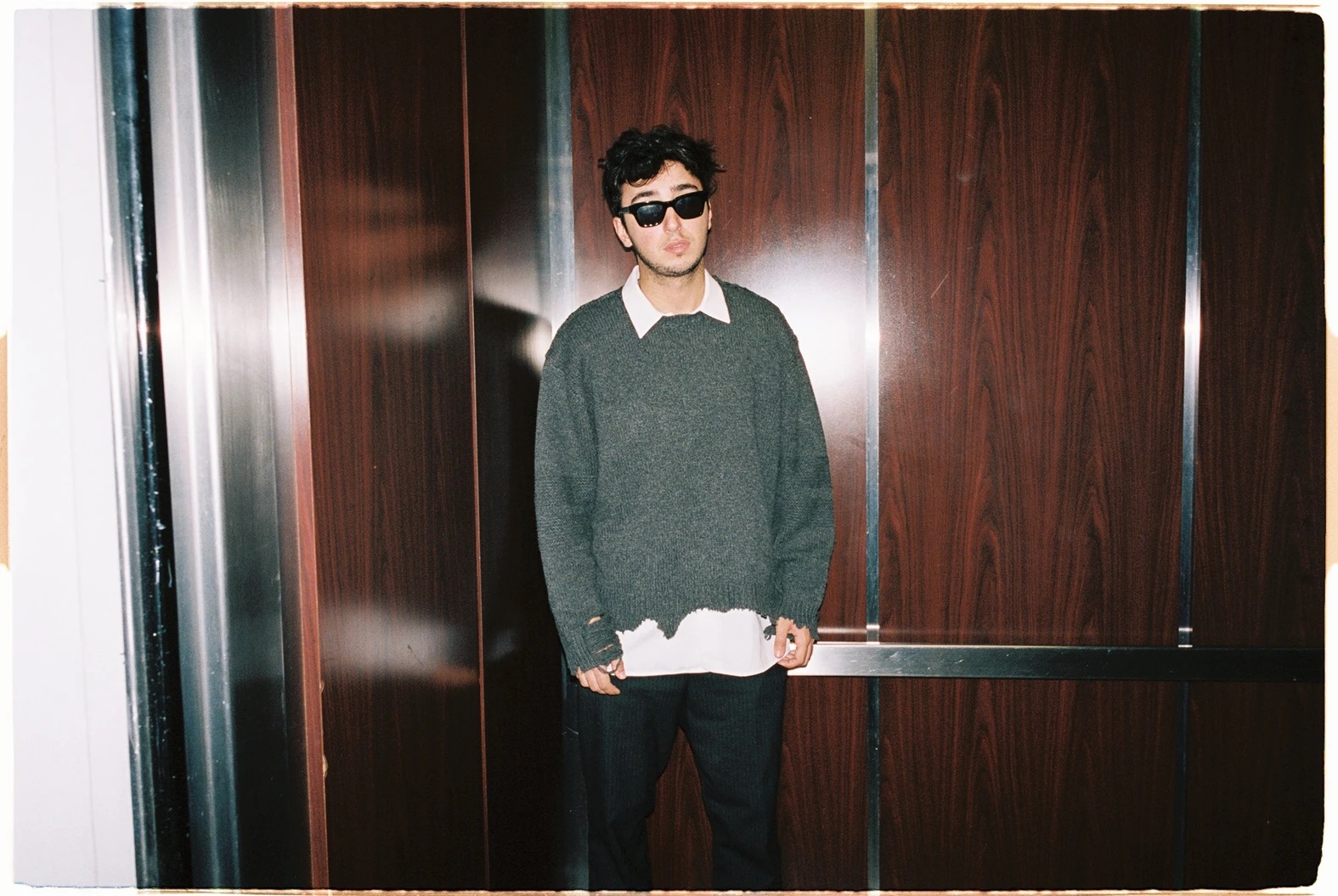
Would you say that your success comes down more to social media and digital platforms in general, or more to your personal network?
Digital stuff is fun, but I’ve never tried to build my presence on social media. Maybe if I had tried, I would be more influential today — but the connections might not have been as strong. I try not to capitalise on my relationships. They’re just things that work out in life, and they all come down to shared interests. Social media really is a double-edged sword. Yes, I post cool outfits or photos, but sometimes it comes back to bite me. People think I’m just a rich kid and stuff like that.
How do you feed your musical creativity?
It’s a natural routine. It’s just a topic of conversation among friends, sending each other music. But it’s also very geographical. If there’s this new guy coming up in NYC and you think he rocks, it’s cool to be one of the people who showcases him — that’s historic, too. It’s about this idea of having a musical world map, which is an idea my mom gave me. But it’s also about the idea of ‘breaking’ music. We play stuff that people know, we play classics, we play new songs. At first, people are like, “Oh cool, what is this?” And then two weeks later, they know the lyrics by heart. Being part of that process is the most exciting.
Credits
Photography Zhamak Fullad
